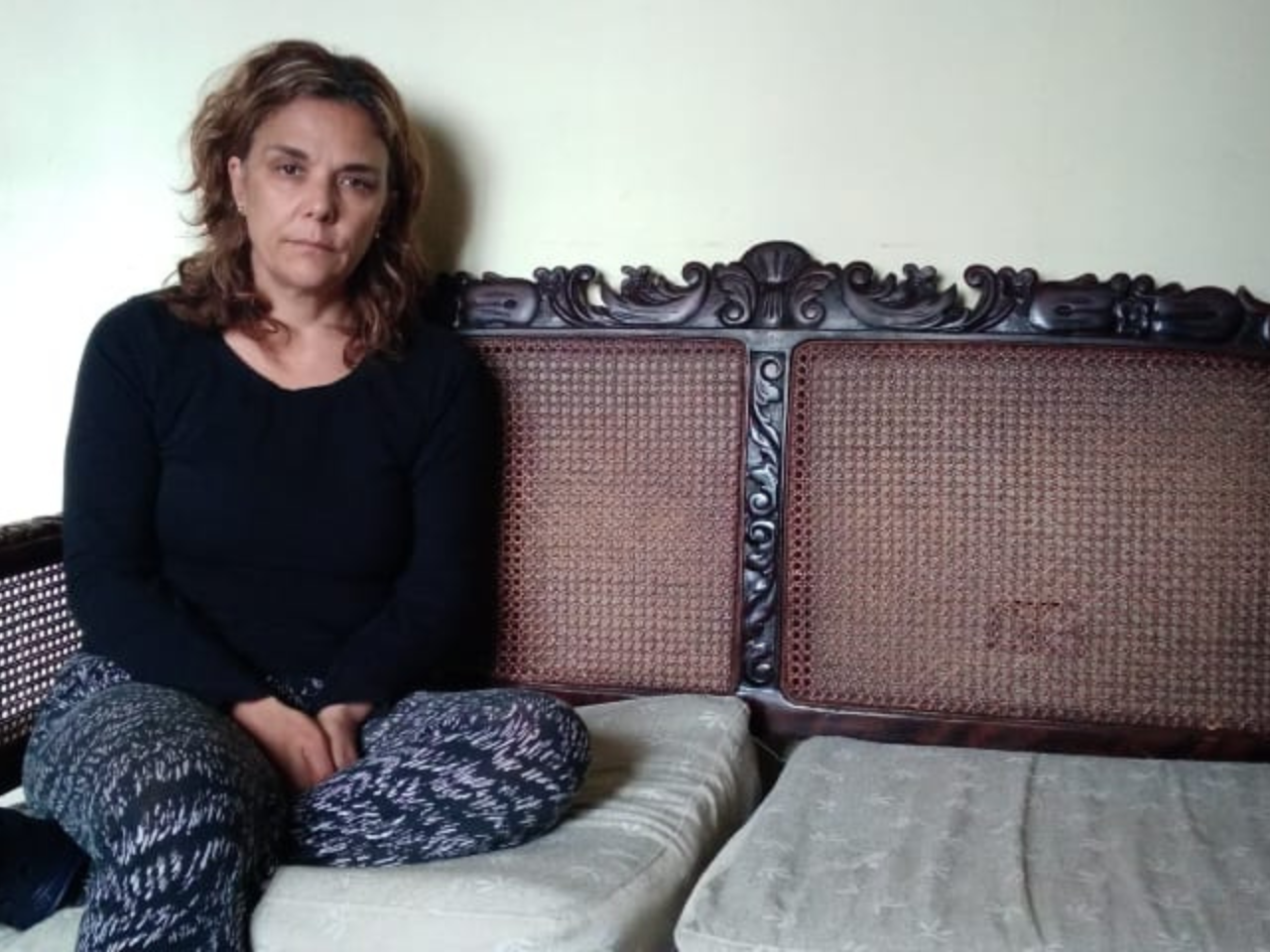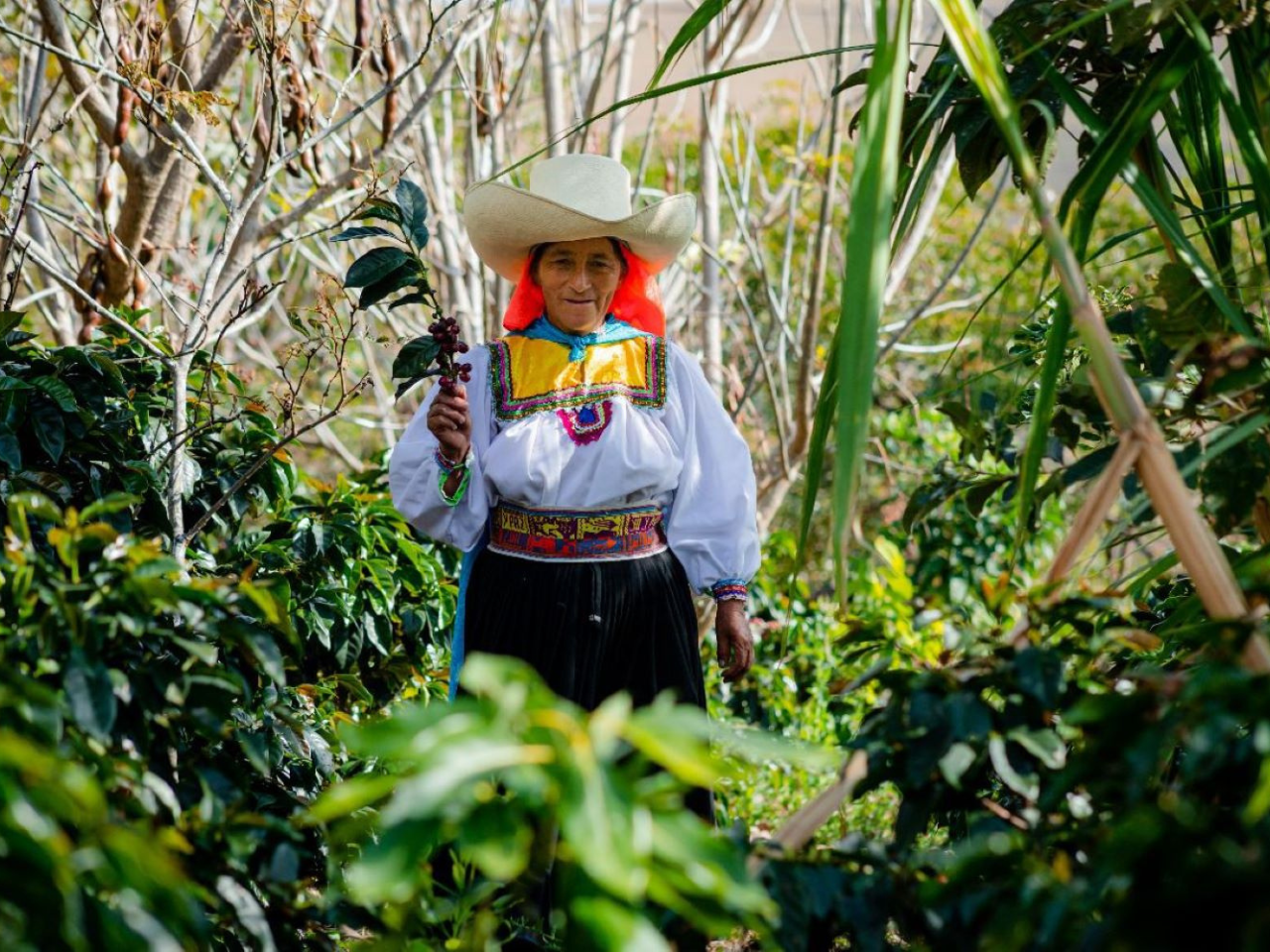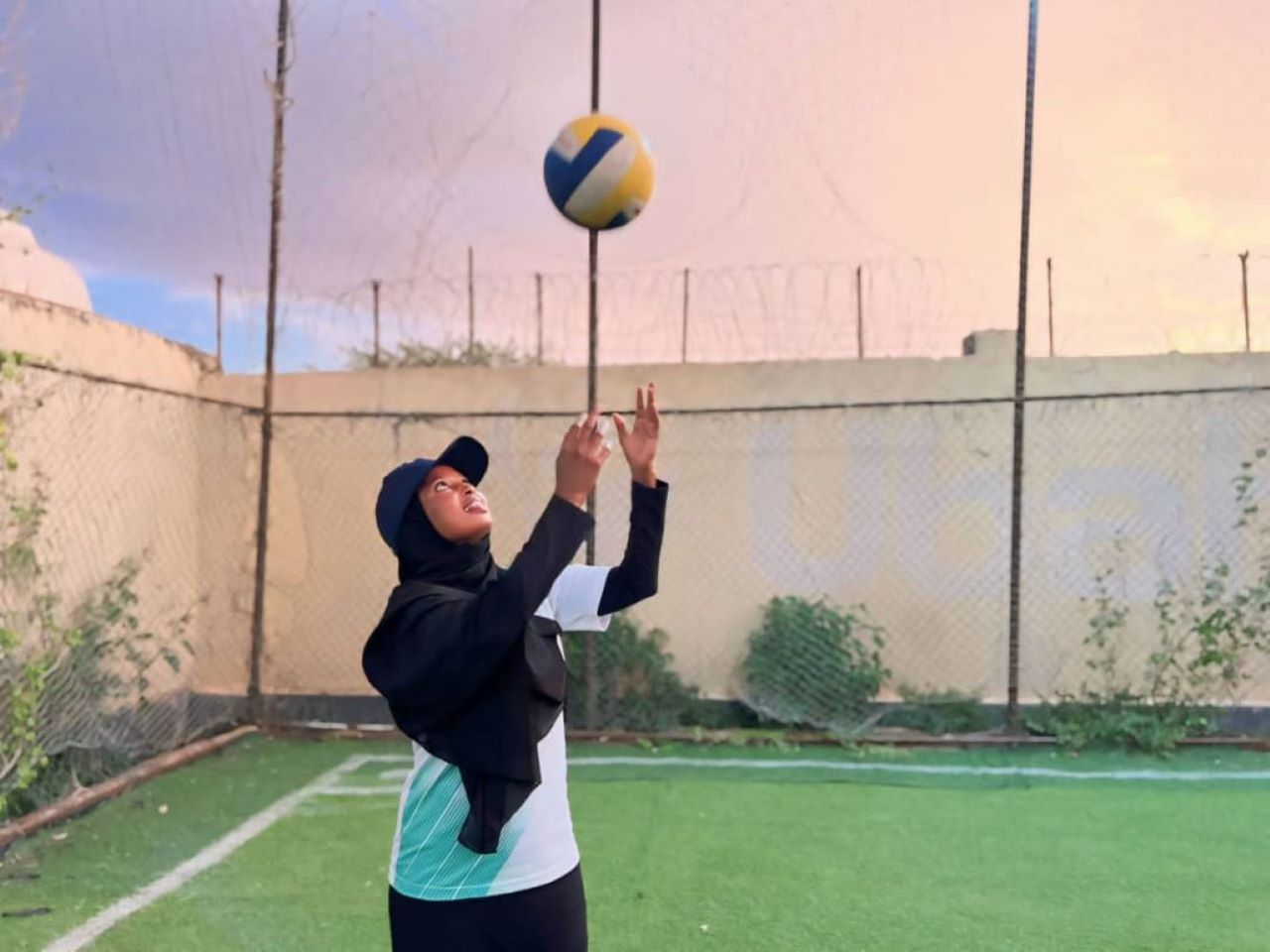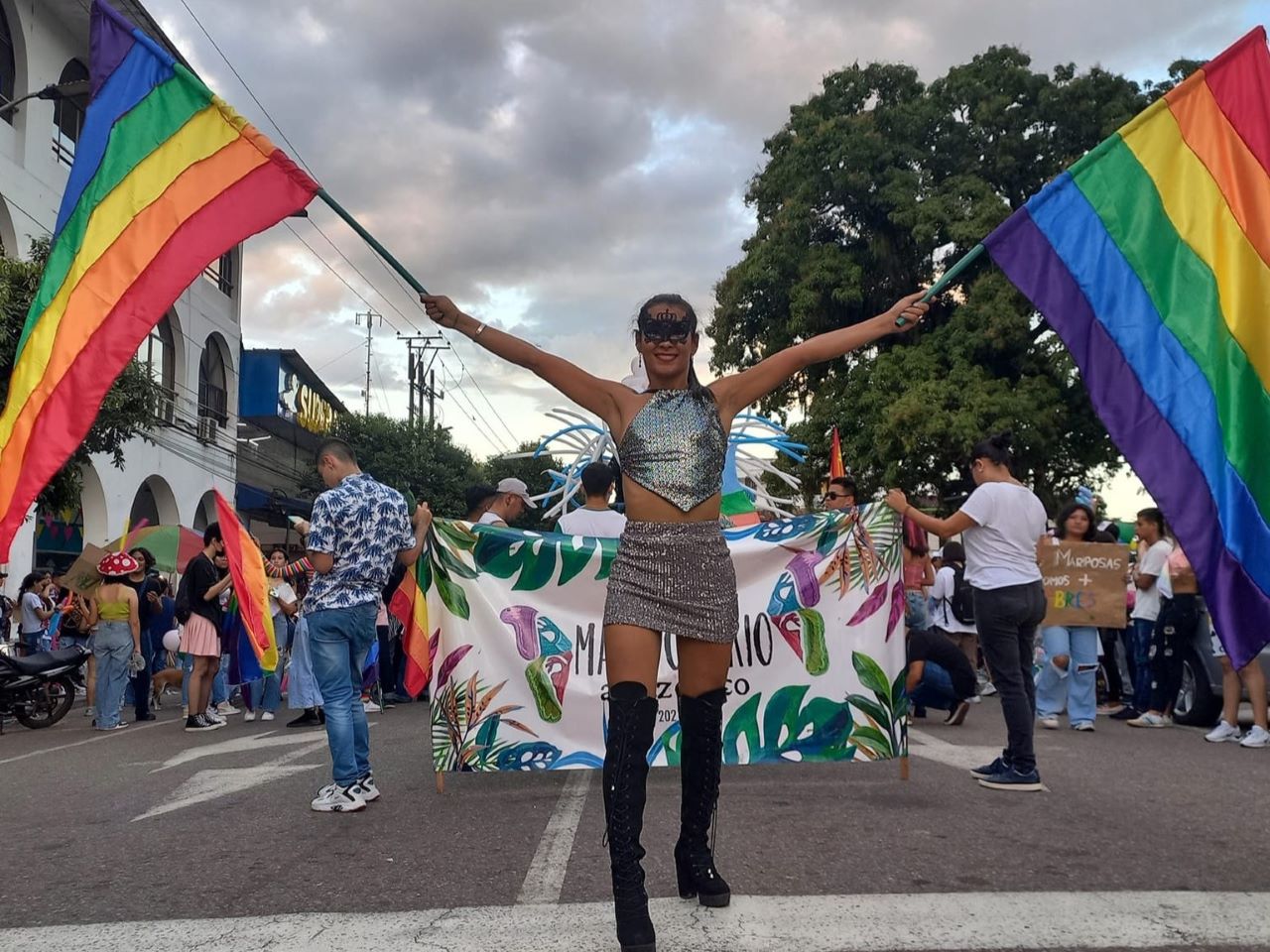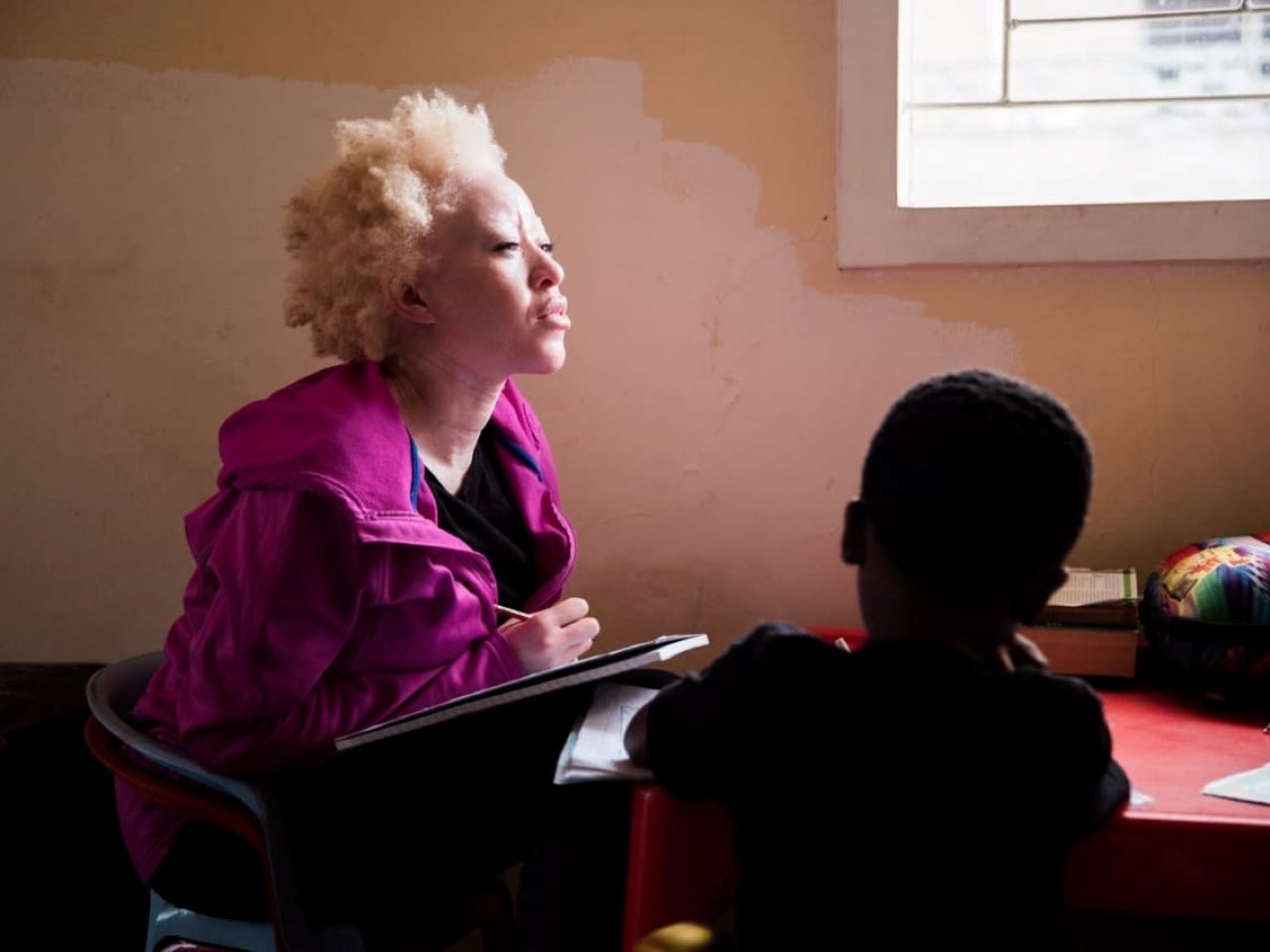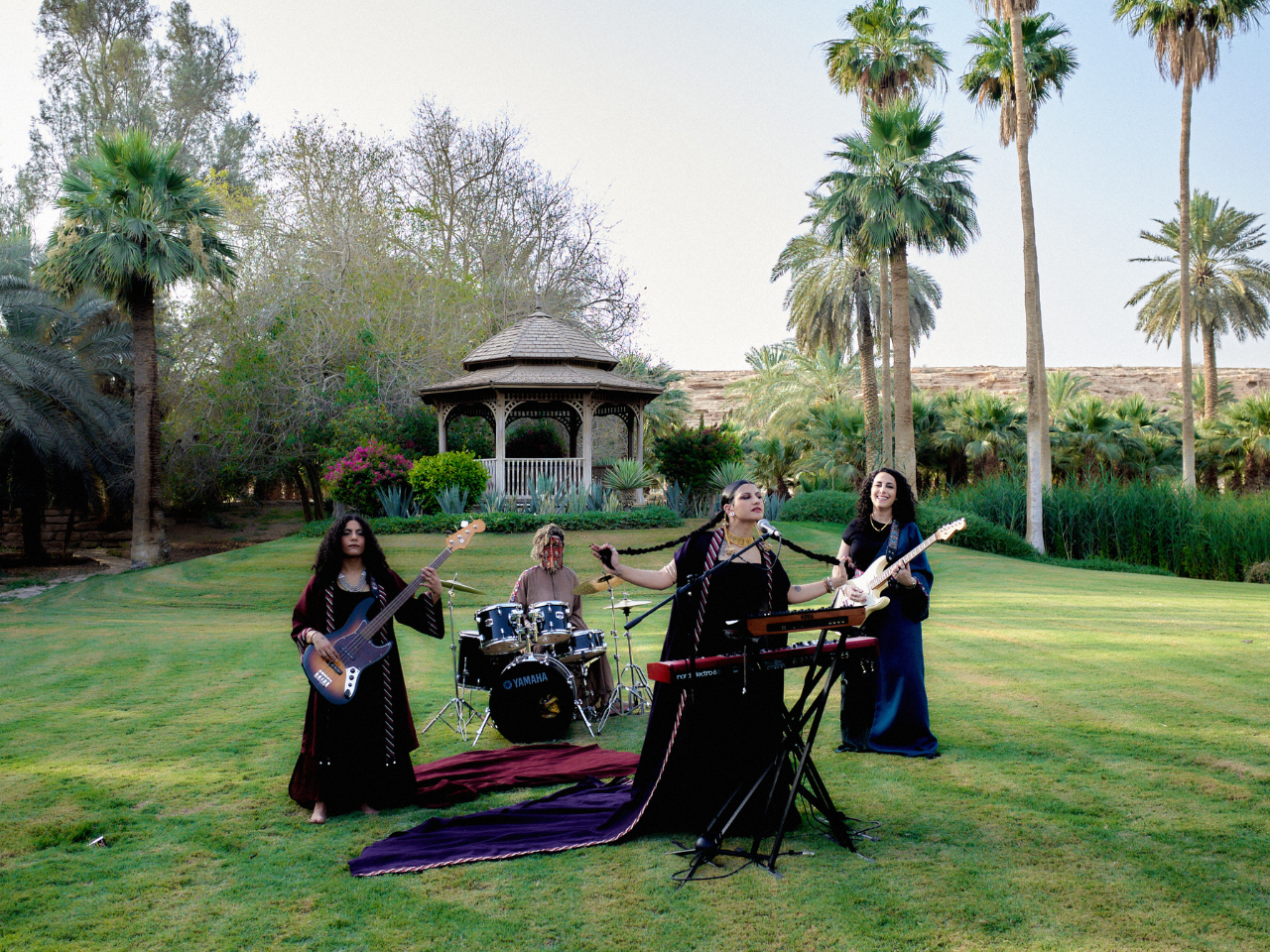Thailand’s landmark marriage equality bill goes in effect in January 2025
Out on the streets, it felt like a party. Bouquets of flowers flew through the air. Huge rainbow flags appeared, covering the tide of people. It felt like the pain of so many years was repaired. Onstage, we announced the historic victory amongst performances and speeches. We watched together as the sun went down, bathing us in light.
- 1 year ago
November 2, 2024
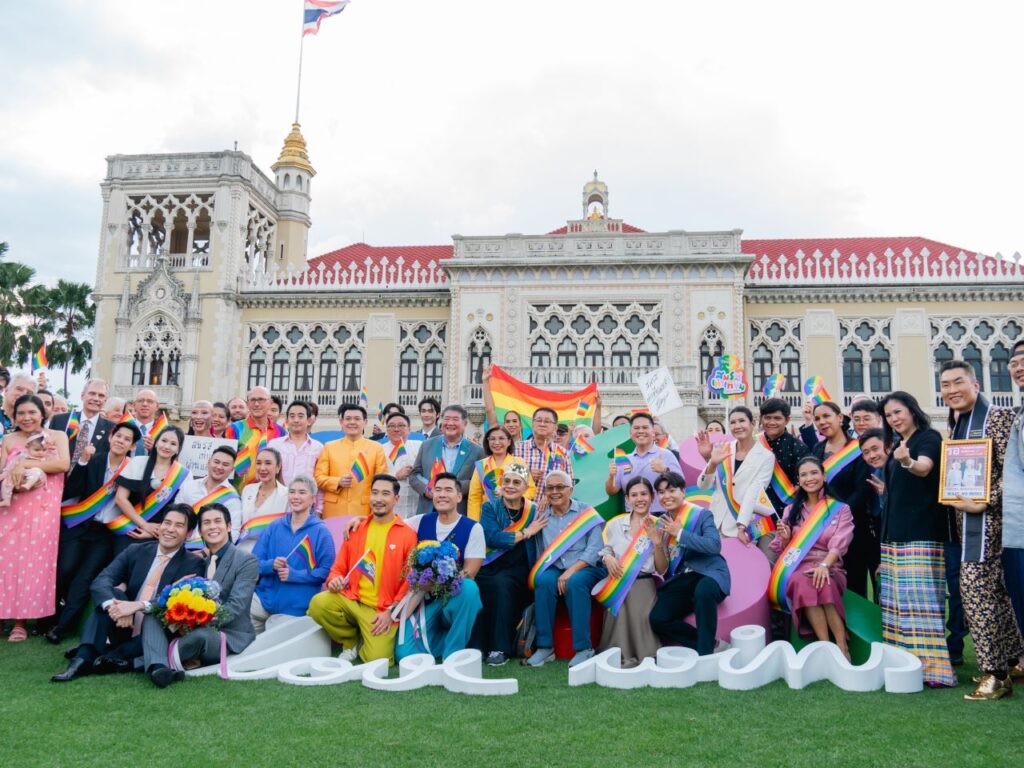
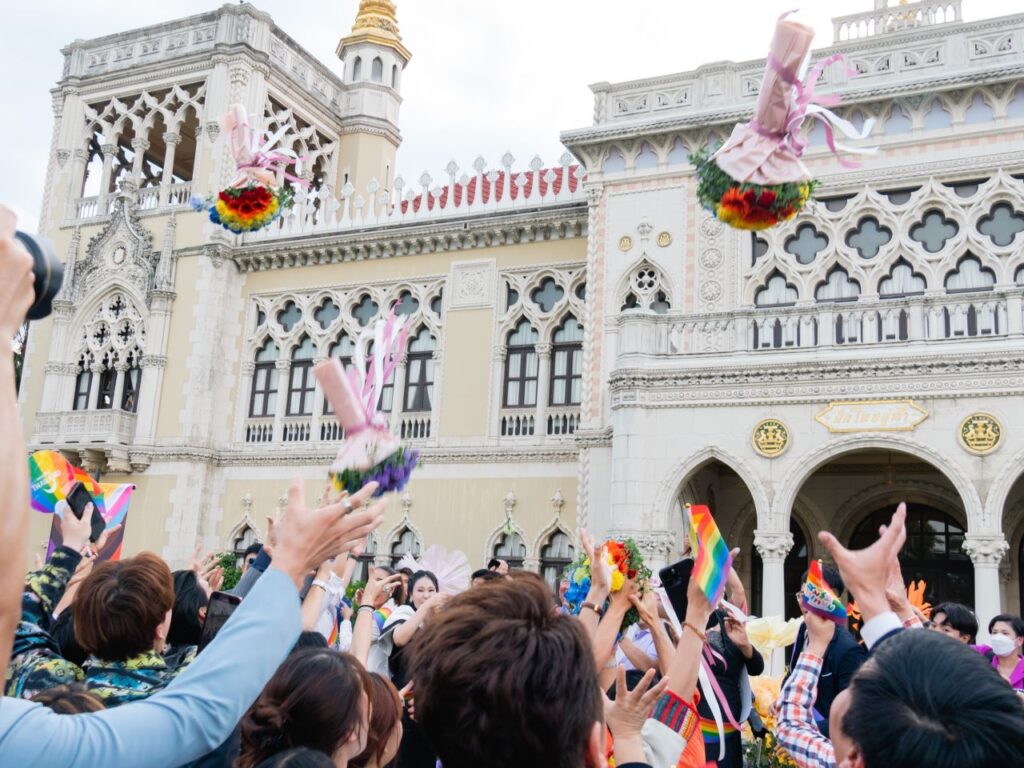
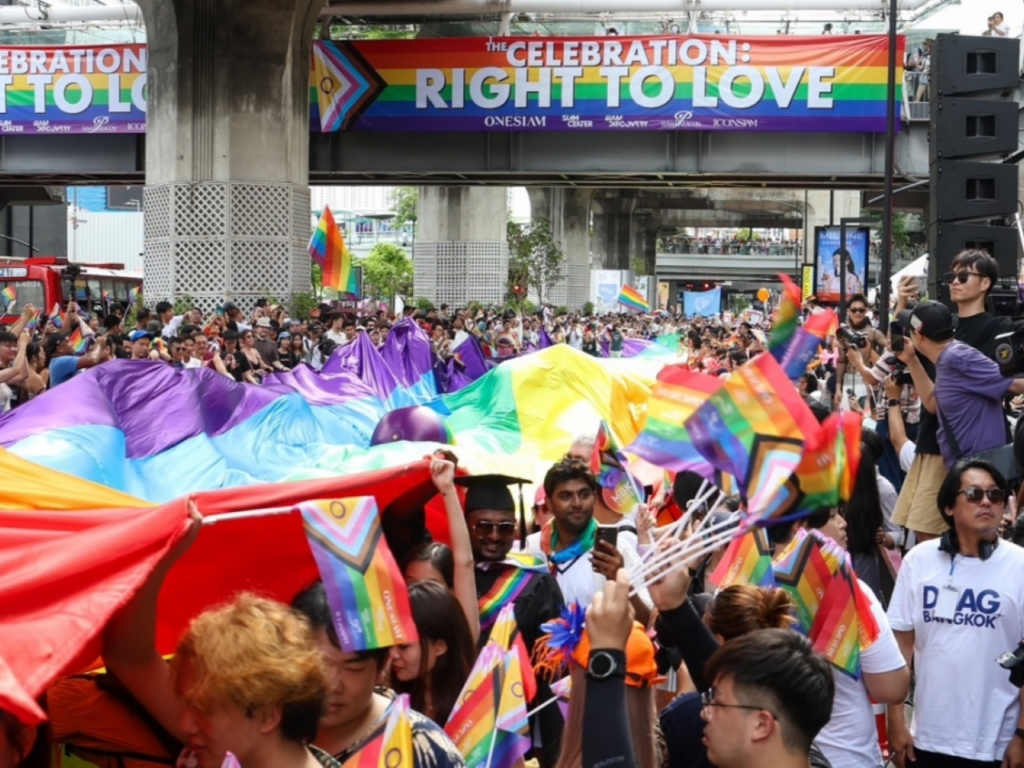
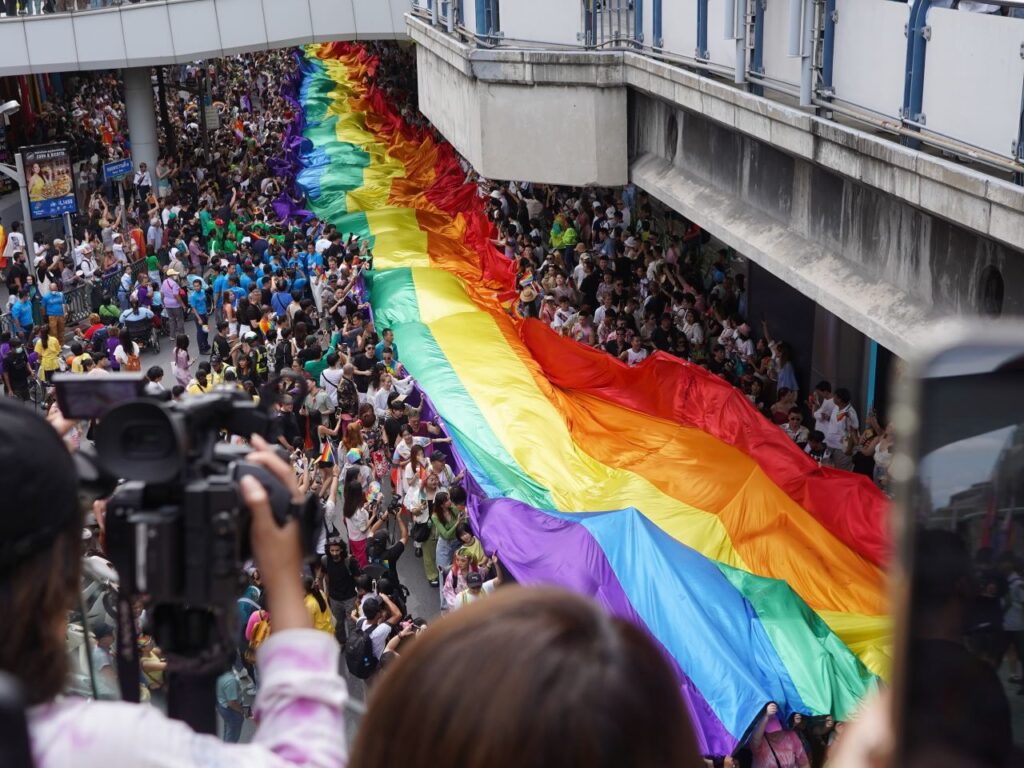
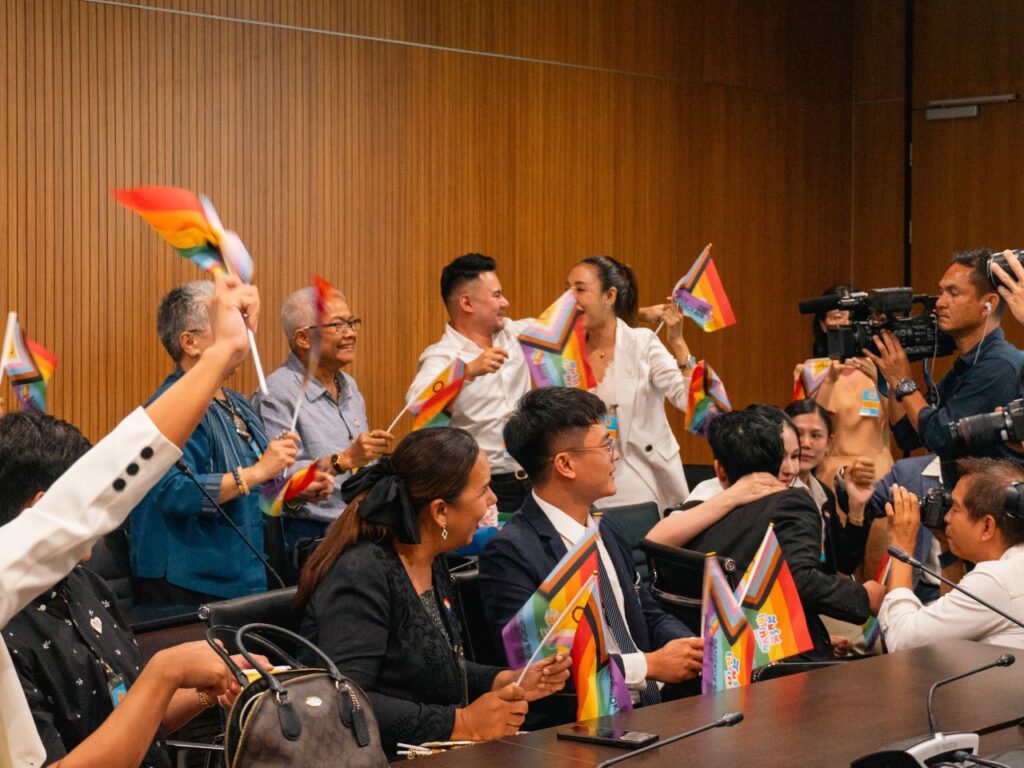

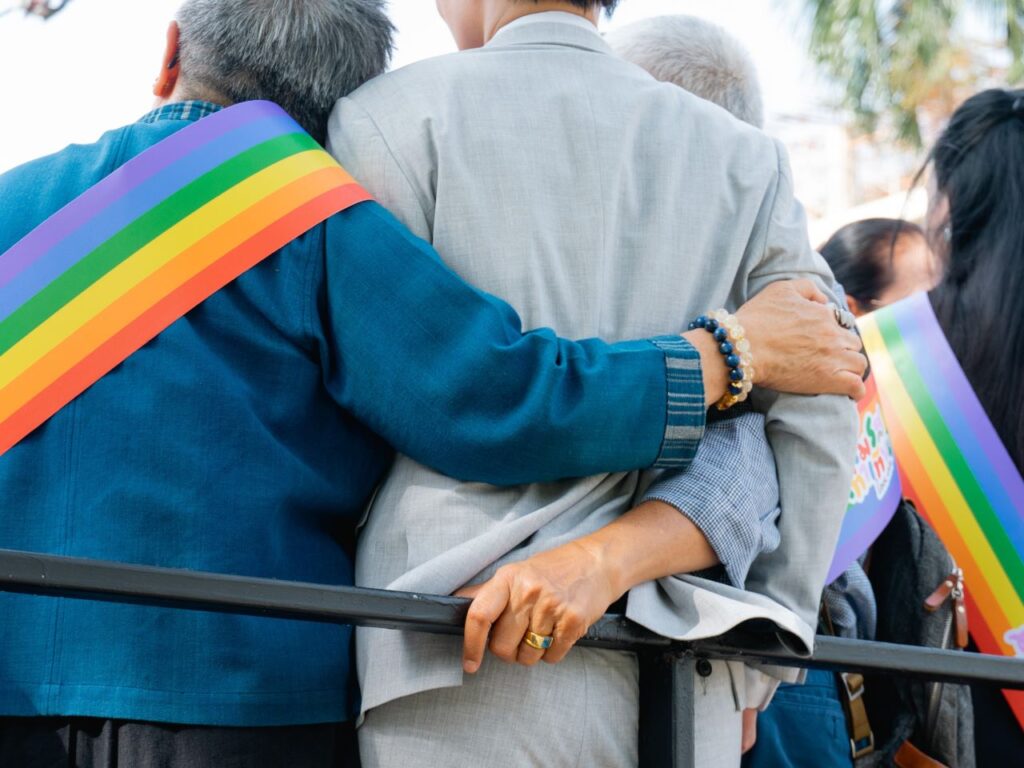
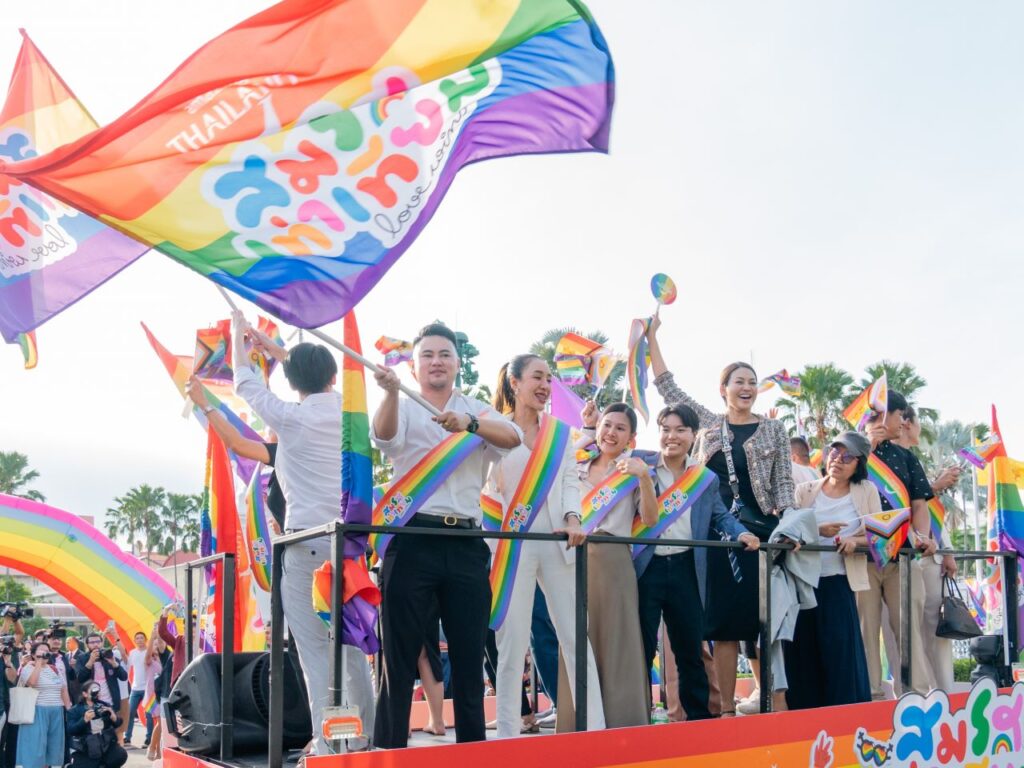
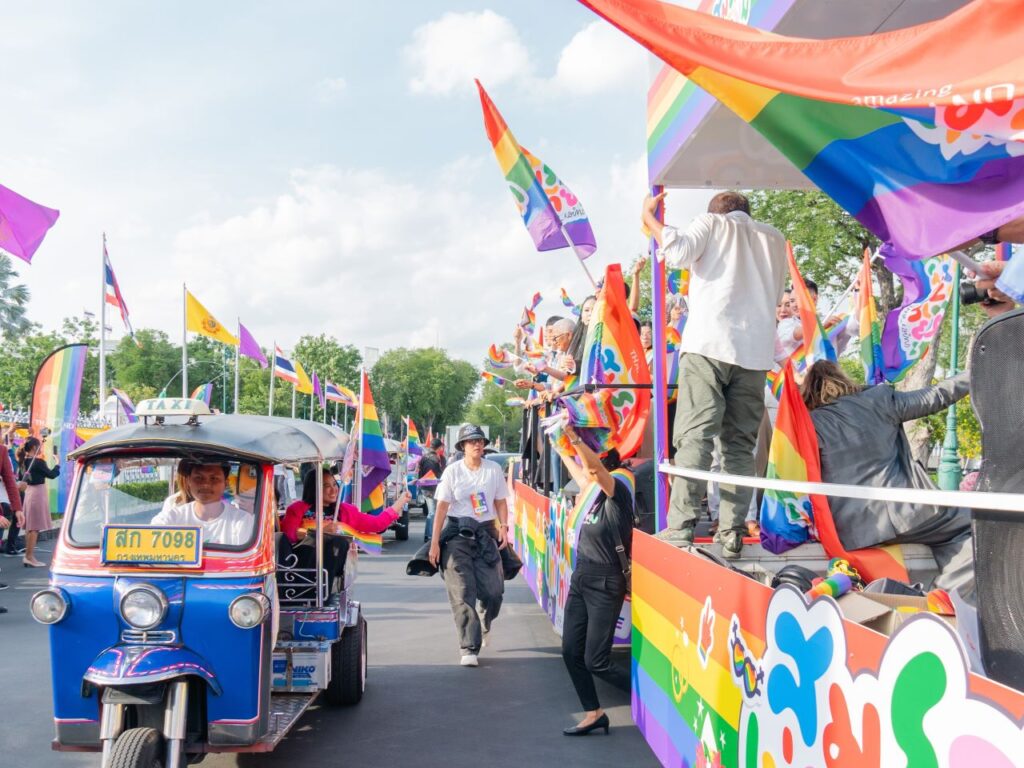
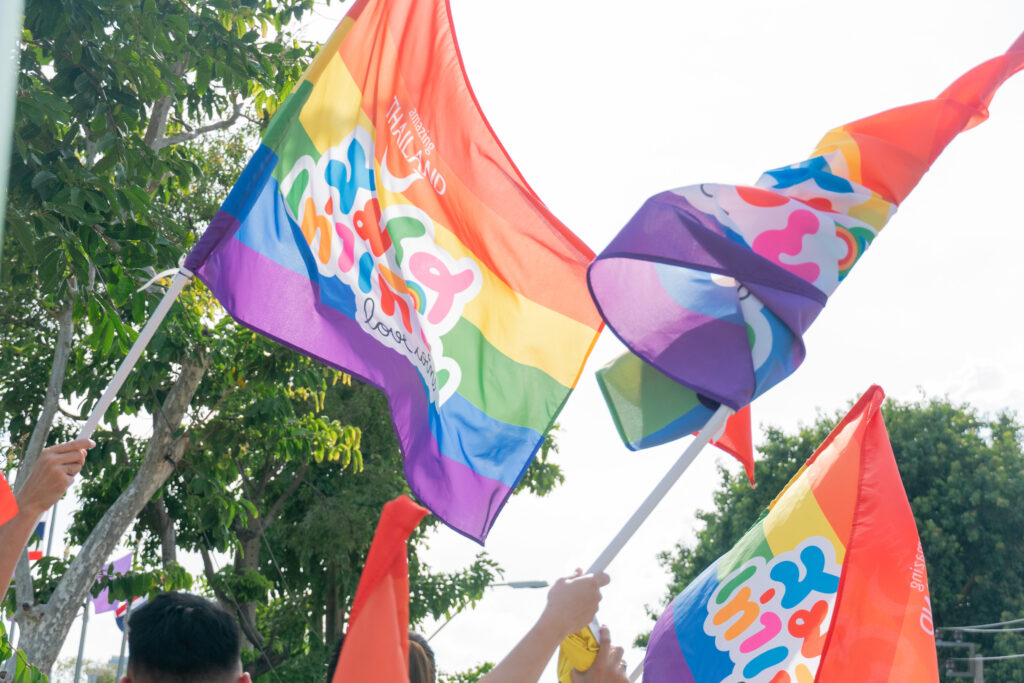

BANGKOK, Thailand ꟷ On January 23, 2025, a new marriage equality bill will go into effect in Thailand. To celebrate this momentous occasion, the organization I co-founded called Bangkok Pride will organize a mass wedding. More than 1,500 LGBTQ+ couples already registered for this magical event in the heart of the city.
Read more LGBTQ+ stories from around the world at Orato World Media.
Growing up as a member of the LGBTQ+ community in Thailand
As a member of the LGBTQ+ community born and raised in the capital of Thailand to a warm and loving family, home offered me a safe place. To my parents, I was completely normal. They never reprimanded or discriminated against me. In fact, at every opportunity, they expressed how proud they felt. However, outside the bosom of my home, everything felt different. Thai culture considers being part of the LGBTQ+ community a sin, and it is not openly accepted according to Buddhist principles.
As a result, I often questioned myself and felt let down by society. Hostility and prejudice remained the order of the day from a young age. My parents taught me how to deal with the violent expressions of others in various settings where I found myself, but I faced horrendous treatment. I thought I could solve it by proving my worth through my ability and intelligence, rather than simply for who I was. Through school I won many awards, hoping to be recognized and valued, but society reacted with cruelty.
People often asked my gender, pointed at me, and demeaned me. Rules in the Thai education system require specific haircuts for each gender and a uniform. Anyone outside those rules faced punishment. As the only gay kid in class, I lacked friends and suffered from an anxiety disorder. My nervousness prevented my body from staying still and I found it hard to speak and swallow. My heartbeat exploded in my ears as my hands sweated and I felt suffocated.
Though I felt incredibly sad, I refused to cry. These are sensations I will never forget. Once, a group of boys burst into the bathroom and looked at and made fun of my genitals while I urinated. They pushed and hit me.
Discrimination against LGBTQ+ people in Thailand explained
Those of us who experienced harassment due to our gender status often face depression, and some commit suicide. Recently, a close friend told me his family physically abused his brother after coming out as gay. Listening to the story, we cried. This young man no longer felt like his body belonged to him. Instead, it felt like a shell – the contents of a stranger.
Another close transgender friend is female but still has some masculine facial features and physical build. In most settings, she faces ridicule. If you are a transgender woman in Thailand, society expects you to be stunningly beautiful and reflect feminine beauty cannons. Those who fail to meet these ridiculous standards face judgement and subjugation. As a victim of extensive verbal and physical aggression, my friend often feels unwell.
Paradoxically. The outside world often views Thailand as a welcoming place for the LGBTQ+ community. In practice, much of society does not respond to that view. Discrimination goes beyond the classroom, into the workplace. Especially for trans people, rejection becomes common. Their applications get thrown away and they face harassment at work. I know people asked to hide their gender identities. In healthcare, problems persist including access, lack of information for HIV treatment, and availability of gender reassignment surgery.
I know countless cases where people started taking hormones with no medical follow-up, putting their lives at risk. Our community often learns through media, social networks, or from the experiences of others like them. For sexual minorities trying get a lease, their experience differs greatly from their heterosexual peers. They face contempt and often resort to cheaper rentals in unstable and unsafe places.
A new LGBTQ+ pride group becomes a platform and a show of force
Three years ago, a group of us met in a bar in Bangkok to form a group. We wanted to make change, and we gave ourselves a name. As a handful of activists and advocates for gender rights, we had a goal. We wanted to create a new movement to strengthen and establish a safe space for the LGBTQ+ community in Thailand. Driven by strong ideals, we brimmed with hope and passion for the cause.
I vividly remember the atmosphere of that day: friendly and intense. We healed each other’s wounds and worked together to build a hopeful vision. We initially called ourselves Naruemit Pride. Naruemit means creation. We sought to create acceptance and fight for cultural change, organizing events around the 2022 Pride Parade. That same year, several bills on marriage equality or civil union made it to Parliament. However, elected officials passed none of them.
From that moment on, the Pride march in Bangkok became a platform to express our desire for marriage equality. That year more than 30,000 people joined the march, with events taking place in more than 20 provinces across Thailand. By 2023, the number of participants grew to more than 200,000 people and expanded to more provinces. The growing number of participants reflected fervent support.
In that parade, one of us shouted, “Marriage!” The crowd roared in response, “Equality!” I felt tremendously moved. It a powerful cry – a song of hope that still resonates deeply within me. Several members of our team and I drafted the proposal for the equal marriage bill. We became like the key initiating a driving force.
Bangkok Pride gears up for vote on marriage equality bill
Fighting and negotiating in the political process, we collected over 300,000 signatures. Working tirelessly alongside other organizations and on social media, an incredible feeling surged. It became one of the first times citizens like us presented to and explained our ideas to Parliament. While organizations fought for marriage equality for over 30 years in Thailand, we made a lot of noise, and the state presence progressed.
The bill passed through three readings in the house and went to the senate for review and approval. We waited expectantly. With the script of my speech in my hands, I looked ahead. My eyes could barely take in the crowd, bathed in the light of the rainbow colors. On May 31, during the opening ceremony of Bangkok Pride, the day before the parade, I gave a speech. Speaking about love and equality in front of large crowd including Thailand’s Prime Minister, cameras flashed from the media.
With Panan on my left and Kyoka on my right, we three stood as commissioners for marriage equality. With the masses in view, moments before my speech began, I thought to myself, “To love is to love many.” My heart pounded. People’s faces reflected an awakening. It motivated my every word. Focused on the right to equal marriage, in my closing comments, I said, “It is not about begging, pleading or even asking for rights. It is about claiming the rights we deserve.”
With those words, applause flooded my ears as the rainbow flags waved. Descending the stage, a colleague, with great euphoria, proclaimed, “You did it!” His eyes filled with tears and my own legs were shaking. A member of Parliament approached and added, “It was a wonderful speech. I could not contain my emotion.”
An incredible celebration erupts in Thailand’s LGBTQ+ community
The next day, we gathered in the center of Bangkok, in the middle of a massive march. As we walked, we sang and laughed. Surrounded by the community’s dreams and wishes, we carried a large multicolored flag, 200 meters wide, sewn by various activists. A unique enthusiasm erupted as people vibrated around us. The imminent approval of the bill felt like a countdown. With arms in the air and faces drenched in tears, thousands walked, including at least 130 different groups, united.
The third procession in the march was my favorite. The theme Love for Dignity, boasted green as its color, representing the dignity of each person despite differences. A group of sex workers led the procession, demanding benefits for their work. This group in particular remains incredibly stigmatized, exploited, mistreated, and marginalized. Though they face the dark side of inequality, they walked in front of us, shining and coming out of oppression.
Between concerts and speeches on the big stage, it felt like the compass turned hard in the right direction, toward change. The moment would change the course of our lives and our history. On June 18, 2024, the government voted on the Marriage Equality Bill. Thinking of that day sends shivers through my heart.
Palpitating and ready to celebrate, we arrived at Parliament early in the morning. Officials prepared a sector where we could wait and watch the voting. Members of the LGBTQ+ community, youth groups, academicians, and other organizations joined together. The sector flooded with rainbows everywhere. The voting began and we watched attentively. With each vote in favor, tears came to my eyes. In the end, we had 130 in favor, 4 against, and 18 abstentions.
There is more work to be done for trans rights in Thailand
That morning became one of the few times in my country’s history such a large number of senators voted together on the same cause. When they approved the bill, I cried uncontrollably. With tears of joy, we laughed, sang, and raised our arms in an unprecedented victory. What we achieved felt magical.
Out on the streets, it felt like a party. Bouquets of flowers flew through the air. Huge rainbow flags appeared, covering the tide of people. It felt like the pain of so many years was repaired. Onstage, we announced the historic victory amongst performances and speeches. We watched together as the sun went down, bathing us in light. We remained at the party until late into the night. Those moments became a part of me.
In a couple of months, on January 23, 2025, 1,500 LGBTQ+ couples (and counting) will gather as the equal marriage law comes into effect. The mass wedding will present a unique phenomenon showing society our love does not represent a small minority. I imagine couples walking hand in hand to register their marriages, becoming the first in Thailand’s history to do so.
The approval of this bill is the first step in reclaiming the legitimate rights of the LGBTQ+ community here. Now we can marry like anyone else and our will to love will be backed by law. A door has been opened to change the scars of yesterday that drag society down. However, we still have a long way to go. Even the law does not recognize the rights of trans people, which leads them to face challenges around acceptance and identity.
They have no representation within the bureaucratic system. The next step is to push for the drafting of a bill that recognizes the rights of gender-diverse people. If we achieve this, it will be extremely beneficial. We will not give up until we establish new values and recognize the dignity of every human being equally. We can now proudly say that Thailand has equal marriage, and the definition of family will change forever, but the struggle continues.






